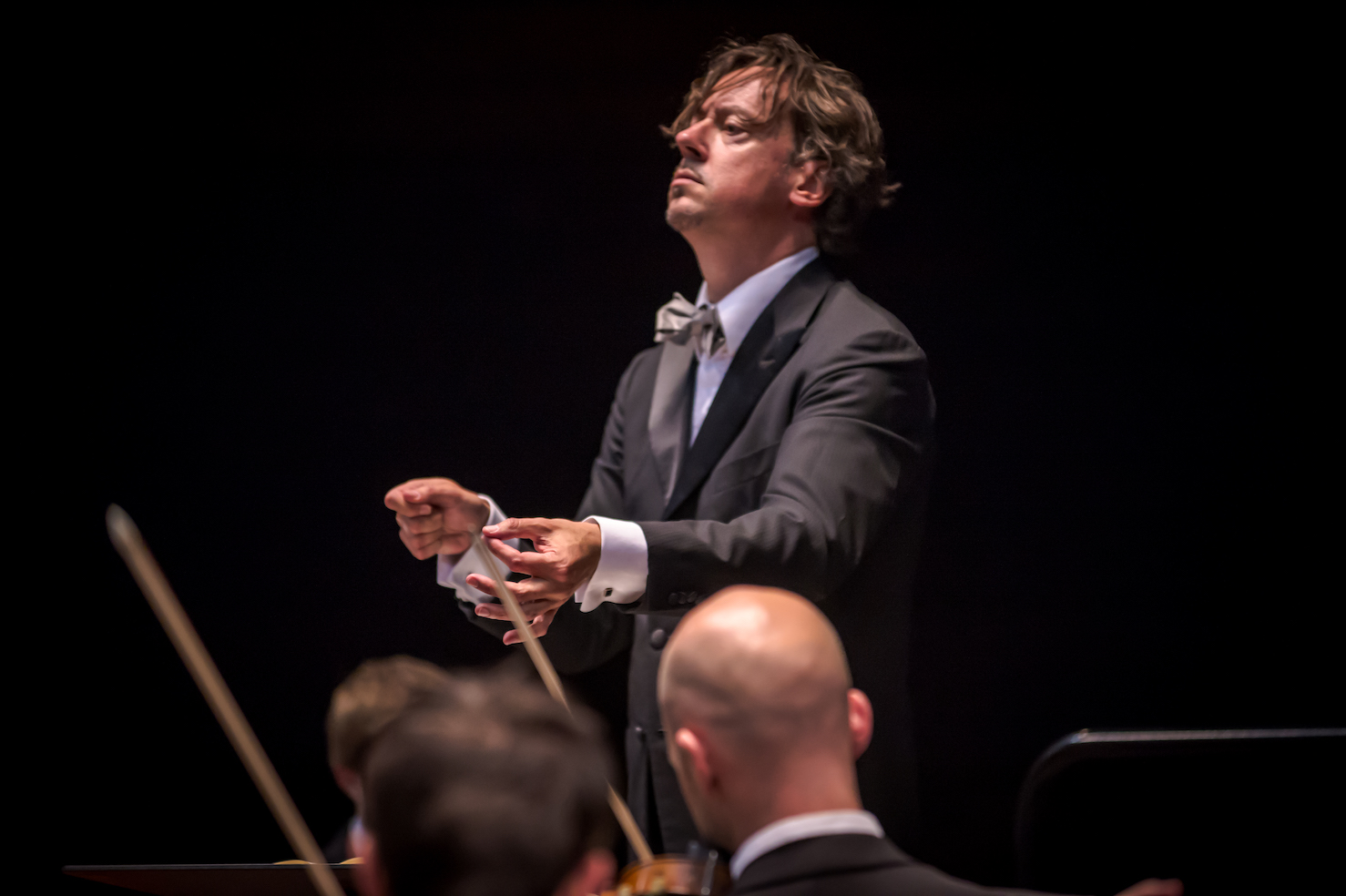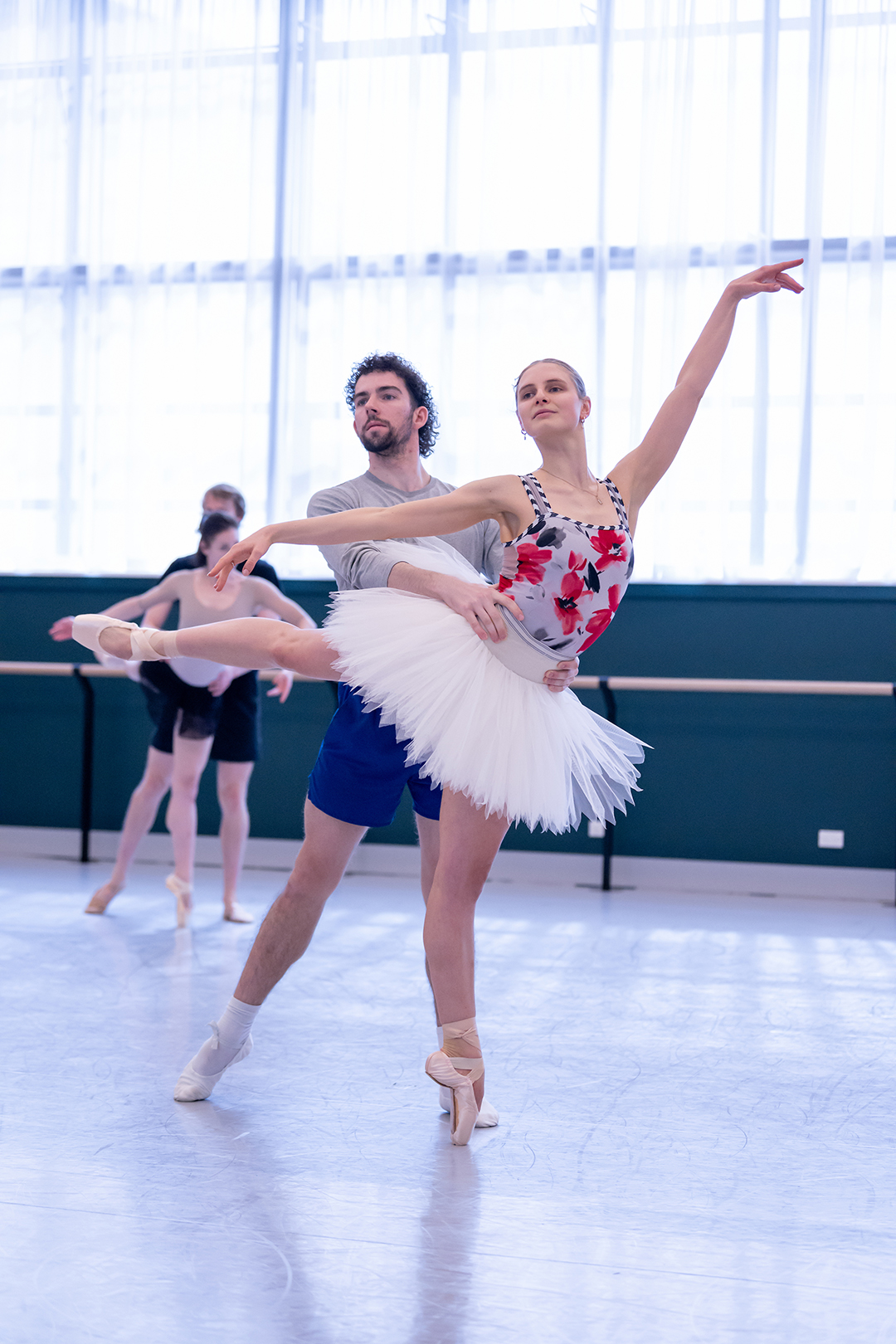06.10.2025
Behind the Baton: A Conversation with Conductor Hamish McKeich
As the Royal New Zealand Ballet prepares to bring The Nutcracker to stages across Aotearoa this festive season, we caught up with celebrated conductor Hamish McKeich to talk about his journey into music, the magic of Tchaikovsky’s score, and the unique collaboration between orchestra and dance. From his early days as a young bassoonist to his passion for shaping the sound world of ballet, Hamish shares insights into what makes this timeless work so special - and what audiences can look forward to when the lights go down, and the first notes of The Nutcracker fill the theatre.

Wellington, NZ. 30.01.2017. The New Zealand Symphony Orchestra. Photo credit: Stephen A’Court. COPYRIGHT ©Stephen A’Court
Can you tell us about your journey into conducting? What first drew you to music?
I started playing the bassoon and progressed quite quickly. I joke that I was a washed-up professional by 21! I then realised that I wanted a deeper involvement with performing orchestral music, so conducting was the logical choice.
You’ve worked across a huge range of musical settings – what do you find unique about conducting for ballet?
Conducting is often a collaboration – think of accompanying a soloist or working in opera. With ballet, it’s no different, except there are real physical and visual elements to consider.
Do you remember the first time you conducted a ballet performance? What was that experience like?
I do, and I was definitely feeling my way. Understanding dance and body movement within the confines of traditional ballet took a wee bit of getting used to.
Tchaikovsky’s music plays such a central role in the magic of The Nutcracker. Are there any particular moments in the score that always stand out to you?
The Nutcracker score stands out from Tchaikovsky’s other ballets – it has a particular sound world that I describe as “like icing sugar on a cold day.” Let’s face it, that’s really apt considering the storyline.

The Nutcracker 2025 by the Royal New Zealand Ballet, photographed in the St James Theatre studios, Wellington, NZ, in August 2025. Photo credit: Stephen A’Court.
How does your approach change when working with dancers on a production like this, compared to a concert performance?
The timeline is quite different. For a concert, I spend time alone with the score and then have a short, intense period with the orchestra leading up to the performance. Ballet is a longer process, where a certain amount of jostling with tempo happens! It’s my first time working with Ty in this capacity, and I’m really looking forward to it.
What kind of collaboration takes place between you and the choreographer when preparing a production like this?
It’s great to see their vision of the work – it can really inform my understanding of the piece as a whole. They usually approach it from a more narrative point of view, rather than purely musical, which is where I naturally come from.
What do you hope audiences will feel or experience when they hear the orchestra in The Nutcracker?
Tchaikovsky’s music is so bright, cheerful and festive that it’s a well-loved classic for good reason. Toe-tapping and dramatic, there’s something for everyone! Having it performed live with an orchestra makes it even more vibrant.
Are there any challenges in conducting such a well-known and beloved piece?
Doing justice to Tchaikovsky’s wonderful score – it’s such a masterpiece.
Do you have a personal connection to The Nutcracker – any early memories or past productions that left an impression on you?
I remember my first Nutcracker production vividly, even though I’d performed much of it in concert many times before. That goes back to when I was a student conductor and had no idea what I was doing! So it’s never been far away.
Are there any memories of conducting for the Royal New Zealand Ballet that are particularly special to you?
Working with the entire RNZB whānau is always wonderful – I feel very privileged to be able to.
What advice would you give to young conductors or musicians who might be dreaming of working in ballet or the performing arts?
Tenacity and hard work are key. Gaining knowledge across different areas of life is important too – it helps you become a better artist.